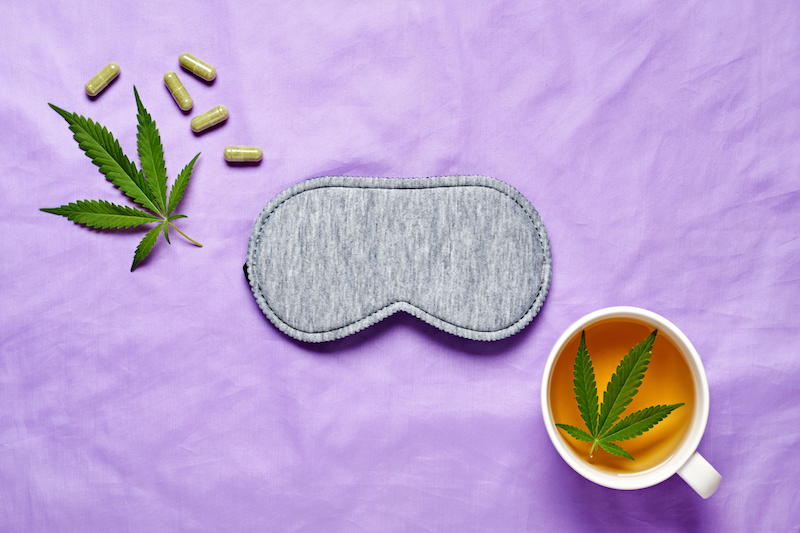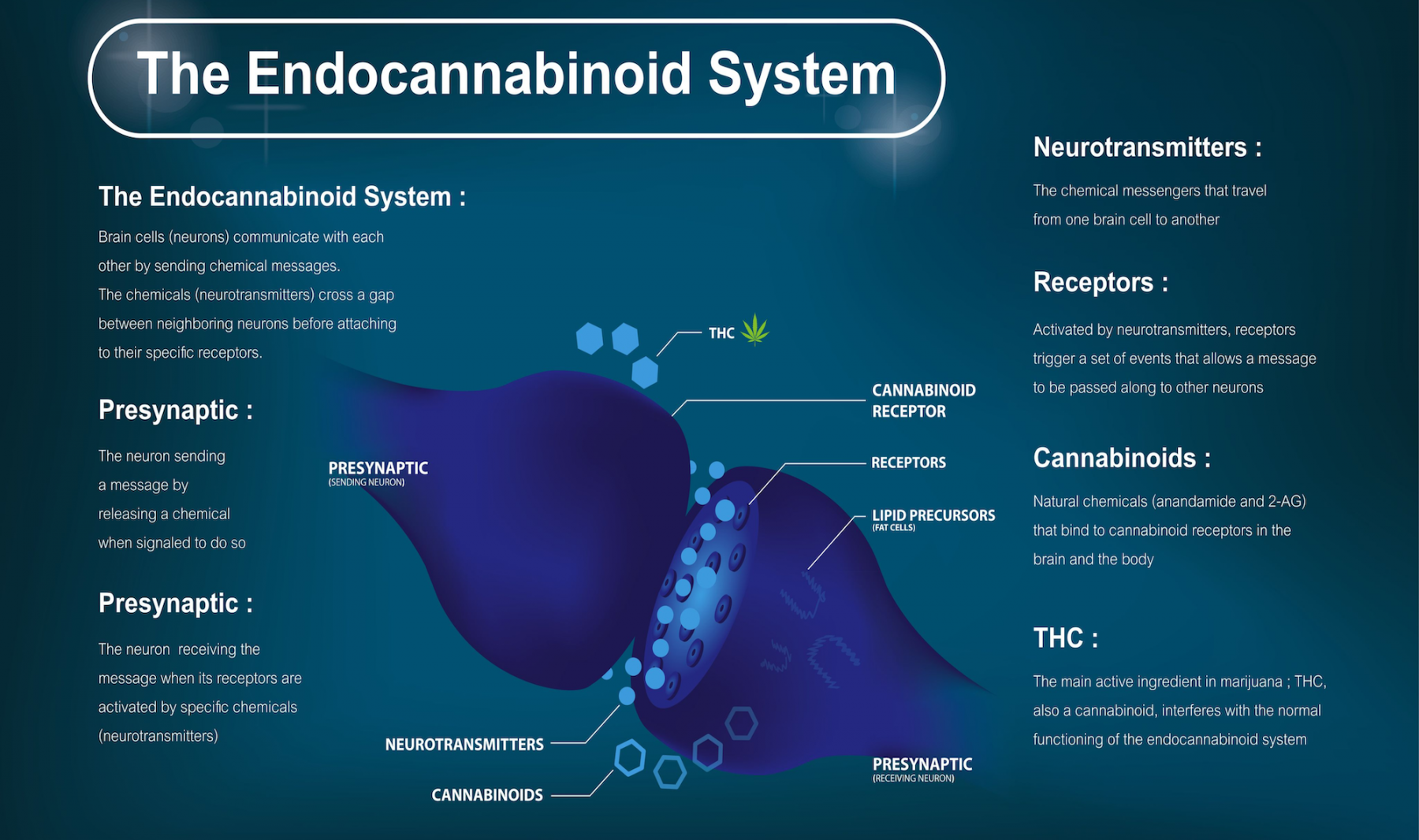Can Cannabinoids Promote a Good Night’s Sleep? The Role of Cannabis in the Sleep Cycle
Sleep is one of the most important things that humans need, as it plays an important role in our physical and mental health. The purpose of sleep is to maintain healthy brain function and physical well-being, and our bodies need sleep to support important functions such as growth and development, proper immune functioning, balancing hormones, solidifying memory, and other critical functions.
At Compassionate Clinics of America, it’s crucial that we educate the patients who receive a medical cannabis recommendation with the knowledge of how cannabis medicine affects the body and some of its most crucial functions. Here, we’ll do a deep dive into sleep and how cannabis, cannabinoids, and terpenes play a role in our sleep function.
How Much Sleep Do We Need?
While we know that everybody is different and every BODY is different, experts recommend that adults get between seven and nine hours of sleep per night. Those who regularly get fewer than six hours of sleep are at a higher risk for a number of health challenges including cognitive decline. Despite understanding the importance of sleep many adults do not get sufficient sleep due to stress, anxiety, environment, or simply just not finding enough time to dedicate to resting.

According to the Center for Disease Control and Prevention, 70% of adults report they obtain insufficient sleep at least one night a month, while 11% report insufficient sleep every night, and 25% report insufficient sleep at least 15 out of every 30 days.
Cannabis medicine is one avenue that people can explore to improve their sleep as well as the time spent sleeping.
The Endocannabinoid System and Sleep
Those who embrace cannabis medicine understand that the efficacy of cannabis medicine, and how cannabis medicine works, hinges on an understanding of the endocannabinoid system (ECS).
The endocannabinoid system (ECS) can be viewed as a lock and key system, providing the foundation for how cannabinoids interact with our mind and body. The ECS acts as a regulator of all bodily systems, including, but not limited to those that regulate sleep, mood, appetite, memory, and reproduction, working to bring the body into balance or homeostasis.

Initial studies provide evidence that the endocannabinoid system is involved in the sleep-wake cycle as well as sleep homeostasis. Sleep homeostasis is the process of ensuring our bodies get enough sleep by signaling when the body needs sleep (i.e. that feeling of being tired and wanting to sleep), and also helps extend sleep when someone is sleep deprived as a means to “catch up” on sleep.
Further research shows that the cannabinoid receptor CB1, is an integral part of sleep regulation, and that activation of the CB1 receptor can induce sleep in animal models.
Different Cannabinoids and their Role in Sleep
As we have uncovered in past articles, cannabis is much more than just THC and CBD, and there are other major and minor cannabinoids that determine cannabis’ effect. Terpenes, the aromatic compounds found in the essential oils of all plants, also play a role in determining the effects of cannabis, and whether a certain cultivar (“strain”) will have you energized and moving, or sinking into the couch.
Here we’ll look at the role of THC, CBD, and another cannabinoid called CBN which is often referred to as a sedative cannabinoid.
THC and Sleep
THC, the psychoactive compound in cannabis, is being studied for its potential to help improve breathing during sleep, with potential to help with disordered breathing conditions such as sleep apnea.

There is also speculation that THC may also reduce the amount of time a person stays in REM sleep, which is the deep sleep where dreaming occurs. For those living with PTSD or Post Traumatic Stress conditions, nightmares and disturbing dreams are a common occurrence. THC may help reduce instances of disturbing dreams for those who live with PTSD. On the other side of that, however, REM is an important part of achieving a restful sleep.
CBD and Sleep
CBD’s role in sleep is interesting because it both may help regulate the sleep cycle and help people fall asleep easier, but also stimulate and improve energy and wakefulness. While people will want to see what works best for them, we usually recommend CBD is taken in the morning, rather than at night.
Where CBD is most helpful as a cannabinoid in cannabis medicine is as a modulator of some issues that cause sleep disturbances like PTSD, pain, anxiety, and depression. CBD studies on sleep look at the non-intoxicating properties, including helping reduce nightmares for those living with PTSD, for which other approaches had been ineffective.
CBN: The “Sleepy” Cannabinoid?

Medical cannabis patients who get their medical cannabis certification may hear the claim that the cannabinoid CBN may help with sleep. Cannabinol, or CBN, is what results when THC oxidizes, or is exposed to air over time. In other words, CBN is what is produced when the THC in cannabis ages.
CBN is touted as a “sleepy” cannabinoid, but it’s still undetermined whether CBN is effective for sleep on its own. More accurately, it’s assumed that CBN’s sedative are experienced when it’s combined with THC and terpenes that have evaporated via The Entourage Effect.
The Importance of Terpenes

At Compassionate Clinics of America, we believe that terpenes are just as important in cannabis as cannabinoids, as terpenes are what help differentiate the effects of different cultivars (“strains”). Terpenes are important building blocks to the cannabis experience, as they also hold certain medicinal and therapeutic properties, but also are large contributors to The Entourage Effect.
In past blogs, we’ve done a deep dive into terpenes and some of their properties. Certain terpenes such as myrcene and linalool, hold sedative properties, and have been used in plant medicine as a sleep aid for centuries. On the other hand, other terpenes such as limonene are known for their energizing properties. Thus, when a medical cannabis patient is looking for more “sleepy” products, it’s always good to understand what terpenes are present.
Explore Medical Cannabis for Better Sleep
At Compassionate Clinics of America, we are very encouraged by the emerging research that shows how cannabis may help people with their sleep cycle, sleep disturbances, or just have a better quality sleep. We encourage those who get a medical cannabis certification with us to try a few different products, keeping in mind that some cannabinoids and terpenes may have more sleepy or sedative properties than others.
If are a resident of Illinois, Oklahoma, Pennsylvania, or Missouri, and you’re concerned about a lack of sleep, sleep quality, or sleep disturbances, reach out to Compassionate Clinics of America to talk to one of our qualified medical practitioners about whether cannabis medicine may be helpful on your journey to better sleep and health.























